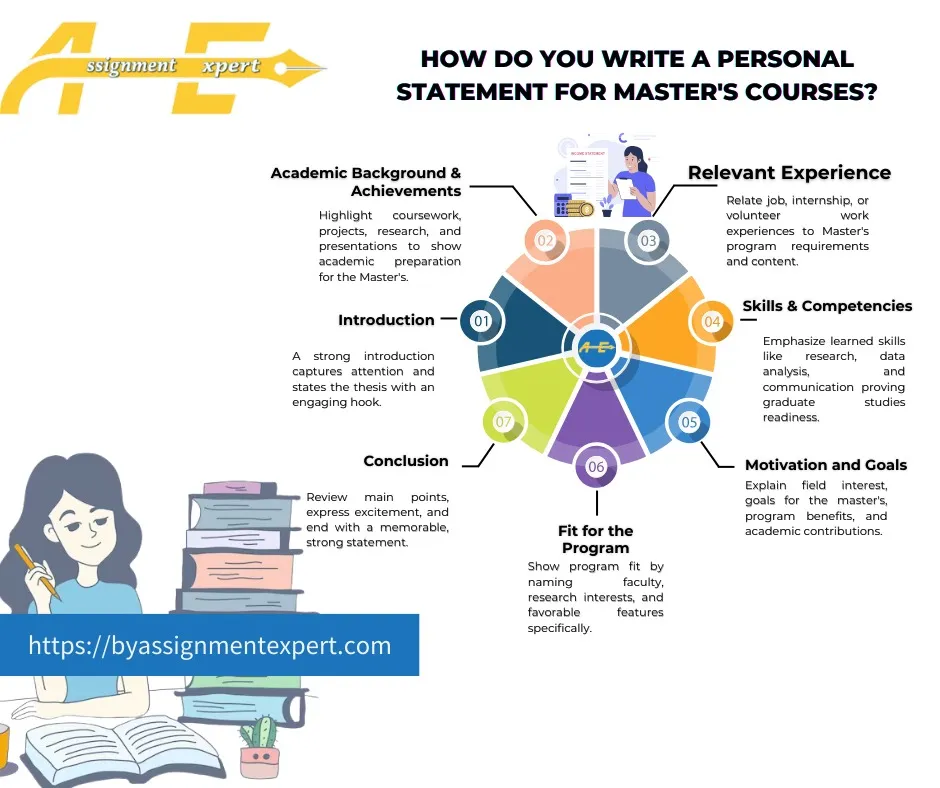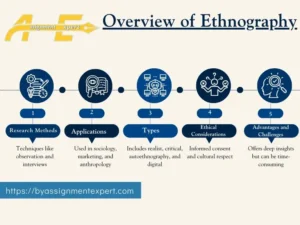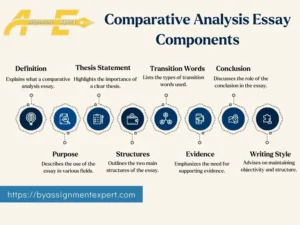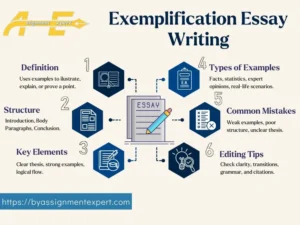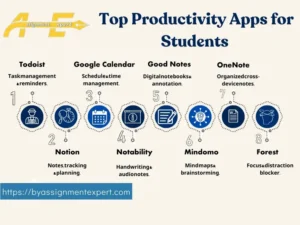Writing a personal statement for Master’s courses can be difficult, but it is significant work to achieve your goal. This statement is your special voice to come out and make the admission committee understand, consider and appreciate your passion, talent and plans. Whether you are planning to pursue a master’s degree in English or Economics, History, or Finance, your statement must be necessary and reflect your unique experiences and aims.
After understanding and accurately following this blog, you will be able to get professionally written personal statement for your master courses.
What Is the Purpose of a Personal Statement?
A personal statement for Master’s courses is your opportunity to present yourself outside the grades and test scores. A personal statement for Master’s courses means you can appear before the admission committee, not with a GPA and MCAT OR GRE, but as a person. It is where you can explain why you would like to plan the position, education experience, and experience gained with the desired vision of what they want to accomplish.
For instance, if you are applying for admission to a master of arts in economics, write about
- Your passion for the markets
- Active involvement in research or affairs relating to economics
- How the lessons learned will be applicable as they work to change economic policies
Similarly, when you apply for the master’s in history, it is pertinent to outline a curiosity for history, the research done before and the desire to contribute to history.
How Is Writing a Master’s Personal Statement Different from a Bachelor’s?
It is crucial to understand the difference between personal statements for bachelor’s and master’s degrees to outline your academic plan for the faculty properly.
If you have ever written any personal statement for subscribing to a bachelor’s degree, this will not be very hard to achieve as you are already lucky. However, applying for a master’s degree requires a different approach:
Personalization
You might have used the same personal statement for your bachelor’s degree for different universities. For a master’s degree, there is a need to personalize the statement for each campus that is being applied to.
Depth of Knowledge
When writing a personal statement for your bachelor’s, you don’t know many details about your subject. At the Master’s level, showing a deep understanding of your field of study and being specific about your knowledge is important.
Level of Experience
When you apply for a master’s degree, you’ll have more experience to draw from. Highlight the most relevant achievements from your professional and educational background and explain how they will benefit your studies.
What Is the Right Format for a Master’s Personal Statement?
Most universities provide specific guidelines for the size of your application for Master’s programs.
- In UK Universities, personal statements are typically 500 words, 1 side of A4 paper, though some universities may demand two sides of A4 or more.
- In the US, personal statements are generally 500-700 words, 1.5 sides of A4 paper, but requirements differ by university.
Most personal statements are now submitted online. If you must submit your personal statement by email or post, keep it simple and use an easy-to-read font.
What Are the Key Components of a Strong Personal Statement?
Many students don’t know how to write a good personal statement and often wonder what to write about. If you want to learn how to write a good personal statement for a Master’s course, keep reading! This blog will discuss the parts of a strong personal statement and give practical writing tips. So, let’s discuss the key components of a strong personal statement.
- Introduction
- Academic Background and Achievements
- Relevant Experience
- Skills and Competencies
- Motivation and Goals
- Fit for the Program
- Conclusion
Introduction
A good introduction must attract the reader’s attention, clearly expressing the issue, problem or thesis. The first step may include using a story or anecdote, a question, or a comment to kick things off and demonstrate an interest in the area. For example, suppose you are writing a statement for a master’s in Finance; then you could start with a narrative that describes an event that placed you in financial markets.
Academic Background and Achievements
Detail your academic journey, highlighting relevant coursework and projects. Especially with the Master’s course, you are applying for, you should provide information about any research, publications, or presentations you have made. Such attributes are useful in giving a vision about oneself as a prepared academic graduate student.
Example: “In college, I learned English literature and looked into modernist writers. I did a research project on how Eliot’s poetry affects today’s literature. This project helped me increase my analytical skills and increased my love for literary criticism, inspiring me to continue my studies.”
Relevant Experience
Discuss the kind of job internship or volunteer work that you prepared for the Master’s course. Relate these experiences to the experiences and content needed to follow the program.
Example: “During my job at the financial consultancy company, I applied what I learned in my economics course to real-life situations. I solved problems, analyzed market trends, and designed financial strategies. This experience helped me understand how useful the theory is in practice.”
Skills and Competencies
Highlight that you have learned certain experiences that will be useful to the program, such as statistics, calculus, and dynamics. Such skills may include the ability to start research, analyze data, communicate effectively and every other attribute or competency that would prove that you are fit for graduate studies.
Motivation and Goals
This section should contain relevant points, explaining how the applicant became interested in the field and their goals when acquiring a master’s degree. Describe how the program will ensure you meet your goals and how you will be contributing to the academic world.
Example: I wish to pursue a master’s in economics because I have a desire in economic policy to support emerging markets. These policies require the completion of understandings, theories and tools, which can be provided by a master’s degree in economics.
Fit for the Program
Take time to evaluate the program well and ensure the application shows why you are right. Be specific when naming actual faculty whose work you wish to follow, plain features that you find favorable, or research interests that make you choose the program.
Example: “The Master’s in Finance program offered at XYZ university is particularly interesting because of the importance of financial modelling, risk management, and behavioural finance. I have scheduled some of the key reasons why I want to pursue the program under the guidance of a professor of Finance.”
Conclusion: Leaving a Lasting Impression
Your conclusion should review your main points and show your excitement for the program. Close with a strong statement that sticks with the reader.
Example: With a strong academic background, relevant work experience, and clear goals, I am excited to join and grow in the Master’s in Economics program at XYZ university. I believe this program will give me the skills and knowledge to make a real difference in economic policy.”
How Can I Write a Powerful Personal Statement: Writing Tips
Universities get thousands of applications every year. They all include records and other regular information, but one part is unique: the personal statement. How can you make your personal statement stand out among thousands? It’s simple: reveal your story in your voice. So here are some tips; if you follow them, you can write an effective personal statement.
Be Yourself
- Be honest about your experience, goals, and objectives.
- Don’t try to be someone you are not; admission committees can tell when you are not real.
Show, don’t just tell
- Use specific samples to show your qualities or experiences.
- Example: “Instead of saying, “I have strong research skills,” say, “In college, I worked on a research project about development, where I collected and analyzed data and published a paper.”
Customize your Statement
- Write a unique personal statement for each program you want to apply.
- Underline parts of your background and interests that match the program’s depths and focus.
Proofread and Edit
- Make sure your personal statement has no grammar mistakes or types.
- Ask teachers, advisors, or friends to review your statement and give feedback.
Be Focused
- Follow the word limit given by the program.
- A short, focused personal statement is better than a long, rambling one.
Use Simple Language
- Avoid using complicated words or language.
- Avoid using quotes, cliches, humour, or unnecessary fluff in your personal statement.
Final Words About Writing Personal Statements
It’s an evident reality that writing a personal statement for the Master’s courses is an opportunity to express oneself creatively. Suppose you know that the personal statement is a part of the admissions process and combines significant components like previous academic experience, expected experience, skills, motivation, and compatibility with the program.
In that case, you can create a story that will instantly appeal to the committee. Also, do not forget to be yourself and support your statements. While doing so, remember that each program is unique, and your statement should reflect that. Finally, check your statement as many times as possible. With these guidelines, you should be ready to write a good statement that will effectively reach the specific target audience of admissions committees.


